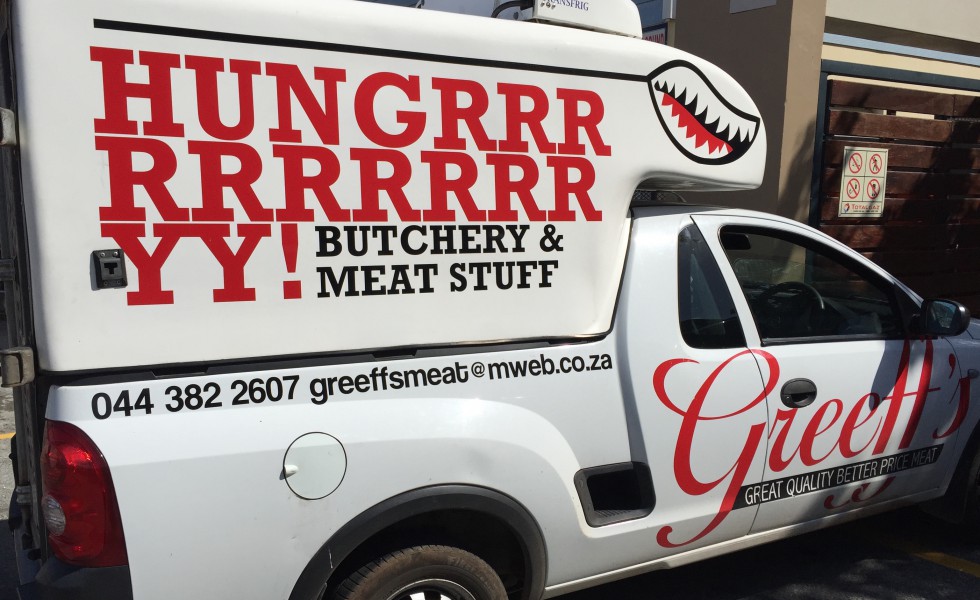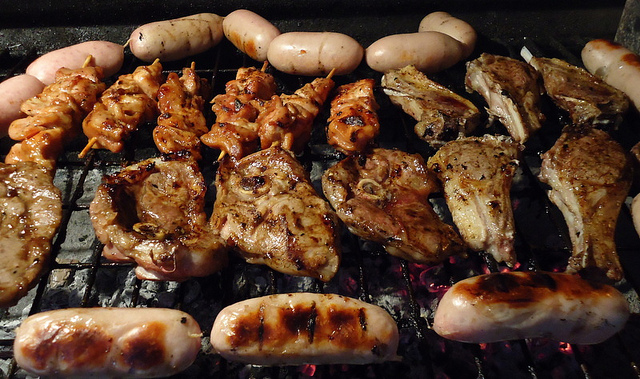
Braai and Brotherhood in South Africa (Part IV)

Caroline Wimberly traveled to Durban, South Africa in late August 2015 to attend three conferences on behalf of Brighter Green. Afterwards, she traveled extensively around the country. This blog is the fourth in a four-part series on her experiences and observations during the trip.
I was told by multiple different Afrikaners (a large ethnic group in South Africa of mostly Dutch descent that developed their own language called Afrikaans in the 18th century) that animal products played a large role in their diets, and I got the impression it was more important as a cultural tradition than anything else. It was the Afrikaner community that started the South African tradition of braai, which is similar to a barbecue, but more deeply-rooted and community-oriented, with a specific braai master in charge.
Braais are not only gatherings where grilled food is served (mostly meat), they are also important points of connection. To emphasize their value across communities, a campaign to formalize a holiday called National Braai Day began. It was endorsed by the country’s National Heritage Council in 2008 and coincides with Heritage Day (September 24). Furthermore, it boasts a world-famous patron, Nobel Peace laureate Archbishop Desmond Tutu, who has called it, “something that can unite us.”
South Africa, the rainbow nation (a term coined by Archbishop Tutu), has come a long way since ending apartheid in 1994, being part of a major geopolitical alliance¹ and hosting the 2010 FIFA World Cup. Yet racial prejudices and economic inequalities still exist in much of the country, with recent xenophobic riots in Durban and other cities likely rooted in past inequities and ignited by the 26.4% unemployment rate.
A few years after being named National Braai Day patron, Archbishop Tutu called for humans to fight injustice to animals and beware of speciesism to justify their mistreatment, in his forward to the 2013 book The Global Guide to Animal Protection. I wonder if he has changed his personal eating habits to support this assertion? It is comforting to see South Africans come together at braais, even those from different cultures who speak different languages. Is it possible to encourage brotherhood inclusive of all species, and leave the animals off the plate (or grill)? I hope more South Africans will the see opportunities for compassion in these gatherings, to truly unite the country and all its inhabitants.
¹South Africa is the most recent member of BRICS (Brazil, Russia, India, China, and South Africa), joining in 2010. The acronym was coined by ex-Goldman Sachs Asset Management chairman Jim O’Neill in his 2001 paper, “Building Better Global Economic BRICs.” While initially an economic theory of the growing power of four emerging economies, the acronym inspired the leaders of each country to mobilize and they held their first official summit as BRIC in 2009, with annual meetings every year since.
South Africa was likely invited to join based on geopolitical strategy (mainly China’s growing interest in ties to the African continent) and it looked better to have a representative from Africa. Even Mr. O’Neill advised against including South Africa into the group, since it doesn’t have the same economic heft as the other countries.
 Brighter Green
Brighter Green




